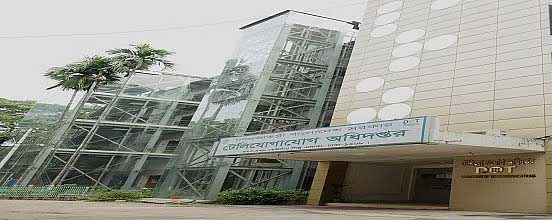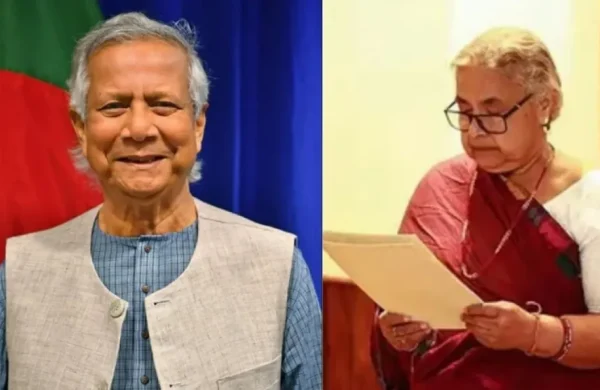Telecommunication department in name only, functionally powerless
- Update Time : Tuesday, April 15, 2025

TDS Desk:
The Department of Telecommunications was established with the objectives of advising the government on telecommunications-related policy formulation, in coordination with various international organisations and building a secure internet and sustainable telecommunications network in the country.
However, even after a decade since its inception, the department appears to have minimal involvement in these specified areas. Rather, separate government agencies exist to carry out such functions.
Apart from maintaining the continuity of employment for former employees of BTTB (Bangladesh Telegraph and Telephone Board), the department has shown little evidence of significant activity.
Nevertheless, the department claims that it endeavours to fulfill responsibilities as per the ministry’s requirements.
Following the dissolution of the BTTB, the government established the Department of Telecommunications in 2015 to ensure the continuation of employment for several thousand of its personnel.
Operating under the Ministry of Posts and Telecommunications, the majority of the department’s employees are currently on deputation to the Bangladesh Telecommunication Company Limited (BTCL).
In addition, some are also posted to entities like Teletalk, TSS (Telephone Shilpa Sangstha Limited), the Cable Industry Corporation and the Submarine Cables Company.
These deputed officials generally return to the department before retirement to conclude their service. Individuals appointed to the Telecoms Cadre are the ones serving in this department.
Fayez Ahmed Tayyab, Special Assistant to the Chief Adviser of the Ministry of Posts, Telecommunication and Information Technology informed that he is aware of the telecommunications department’s current state.
He mentioned that the department has been advised to consider working jointly with the Bangladesh Telecommunication Regulatory Commission (BTRC).
There are also discussions about involving the department in monitoring the quality of service of telecom operators.
As talented professionals work in the telecom sector, Fayez Ahmed Tayyab noted that failure to utilise their expertise may result in the sector becoming increasingly marginalised.
‘REHABILITATION CENTRE’ FOR BTTB EMPLOYEES
An analysis of the activities of the Department of Telecommunications along with various reports and the department’s own statements reveals that the institution primarily functions as a rehabilitation centre for former employees of BTTB.
From the very outset, the background, objectives and key functions of the department have centred on safeguarding the employment of BTTB staff and ensuring proper administration of their transfers, deputation, promotions, pre-retirement leave, pensions and other related matters.
Sources within the telecommunications sector and the ministry have indicated that the establishment of the department was modeled after India’s Department of Telecommunications (DoT). Additionally, many BTTB employees were reluctant to transition to employment within corporate entities. As a result, a separate department was created specifically for them.
However, since other agencies carry out the relevant operational duties, many of these employees are left with little to do beyond waiting for retirement.
Directors General, appointed to lead the department, typically assume their roles towards the end of their careers. Furthermore, over 80 to 90 per cent of the department’s allocated budget is reportedly spent on salaries and allowances.
UNNECESSARY INVESTMENT
One of the two major projects undertaken by the Department of Telecommunications is the Cyber Threat Detection and Response (CTDR) initiative.
In its first phase, implemented from 2017 to 2019, the project incurred a cost of Tk 1.2 billion (120 crore). As part of this initiative, firewall-type equipment was installed at IIG (International Internet Gateway) and NIX to identify and block harmful websites.
The department stated that due to the growing demand for bandwidth in the country, a second phase of the CTDR project was undertaken from 2022 to 2024 to increase the capacity of the installed infrastructure, with an additional expenditure of Tk 420 million (42 crore).
Sources within the ministry and the IIGs revealed that the objective of the CTDR project was to block specific content on social media platforms, particularly Facebook and YouTube.
However, this was found to be technically unfeasible as such actions require the cooperation of the respective platforms. As a result, the department shifted its focus towards blocking entire websites, primarily targeting pornography and gambling sites.
Ahmed Zunaed, Secretary General of the International Internet Gateway Association of Bangladesh (IIGAB) that the original objectives of the project could not be realised.
He noted that IIGs themselves have the capacity to carry out website blocking activities, making such a large-scale financial investment unnecessary.
IIG companies further reported that the firewalls installed by the department are positioned in the data path between IIGs and ISPs (Internet Service Providers), meaning all content accessed by end users in the country passes through this equipment. The installation of such hardware has increased electricity consumption and negatively impacted internet quality.
IT expert Sumon Ahmed Sabir that, given the significant increase in gambling sites and apps in the country, the investment in this project appears futile.
He added that most of the sites targeted for blocking can still be accessed easily via VPNs (Virtual Private Networks). Rather than resorting to content censorship, the focus should have been on raising public awareness.
URGE TO GETTING OUT OF ‘BTRC SHADOW’
According to relevant sources, the government has not appointed anyone to the Telecom Cadre since 2008. As a result, concerns have arisen regarding the future and effectiveness of this department once all current officers retire.
Government agencies and departments are established to serve the people. Their salaries and benefits are funded by taxpayers. Therefore, creating a department only to render it nearly dysfunctional and failing to make proper use of its manpower inevitably raises questions.
Upon reviewing the department’s annual report, Professor BM Moniul Hossain of the Institute of Information Technology at Dhaka University remarked that while the stated objectives and scope of the department are commendable, it has effectively been left powerless.
He pointed out that both the department and the BTRC share overlapping functions.
The government could consider allocating specific responsibilities between the two, he remarked.
According to him, within its jurisdiction, the department could audit customer complaints related to telecom services. It also has the potential to function as a research institution.
Rather than keeping the Department of Telecommunication in the shadow of BTRC, the government must pay due attention to its development, BM Moniul Hossain insisted.
Professor BM Moinul Hossain further suggested that given the country’s vulnerable state of cyber security, the directorate could play a vital role in addressing these concerns.
















